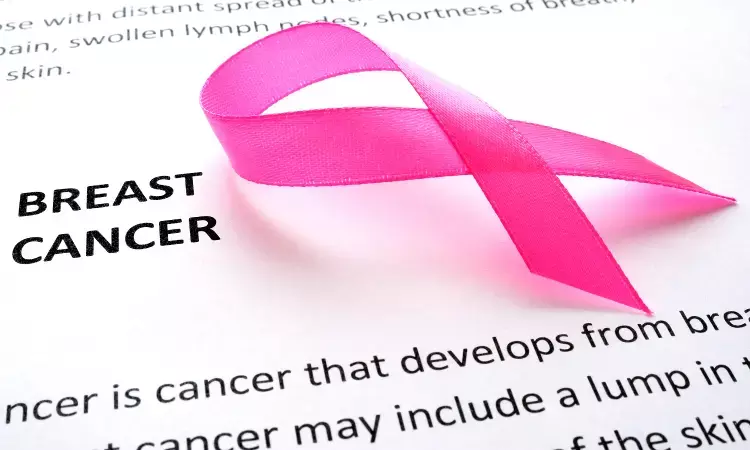- Home
- Medical news & Guidelines
- Anesthesiology
- Cardiology and CTVS
- Critical Care
- Dentistry
- Dermatology
- Diabetes and Endocrinology
- ENT
- Gastroenterology
- Medicine
- Nephrology
- Neurology
- Obstretics-Gynaecology
- Oncology
- Ophthalmology
- Orthopaedics
- Pediatrics-Neonatology
- Psychiatry
- Pulmonology
- Radiology
- Surgery
- Urology
- Laboratory Medicine
- Diet
- Nursing
- Paramedical
- Physiotherapy
- Health news
- Fact Check
- Bone Health Fact Check
- Brain Health Fact Check
- Cancer Related Fact Check
- Child Care Fact Check
- Dental and oral health fact check
- Diabetes and metabolic health fact check
- Diet and Nutrition Fact Check
- Eye and ENT Care Fact Check
- Fitness fact check
- Gut health fact check
- Heart health fact check
- Kidney health fact check
- Medical education fact check
- Men's health fact check
- Respiratory fact check
- Skin and hair care fact check
- Vaccine and Immunization fact check
- Women's health fact check
- AYUSH
- State News
- Andaman and Nicobar Islands
- Andhra Pradesh
- Arunachal Pradesh
- Assam
- Bihar
- Chandigarh
- Chattisgarh
- Dadra and Nagar Haveli
- Daman and Diu
- Delhi
- Goa
- Gujarat
- Haryana
- Himachal Pradesh
- Jammu & Kashmir
- Jharkhand
- Karnataka
- Kerala
- Ladakh
- Lakshadweep
- Madhya Pradesh
- Maharashtra
- Manipur
- Meghalaya
- Mizoram
- Nagaland
- Odisha
- Puducherry
- Punjab
- Rajasthan
- Sikkim
- Tamil Nadu
- Telangana
- Tripura
- Uttar Pradesh
- Uttrakhand
- West Bengal
- Medical Education
- Industry
Antipsychotic drugs usage may contribute to development of breast cancer

China: A new study published in Epidemiology and Psychiatric Sciences shows that the prolactin-raising effects of certain drugs may be responsible for the modest link between antipsychotic usage and breast cancer.
Despite claims that antipsychotic usage in women increases the incidence of breast cancer, the available research is still ambiguous. As a result, this study was carried out by Janice Ching Nam Leung and colleagues to investigate the observational data already present in the literature and establish this hypothesized link.
The key findings of this study are summarized below:
1. Ultimately, nine observational studies were considered for review (N = 2 031 380) and seven for meta-analysis (N = 1 557 013), comprising five cohorts and four case-control studies.
2. All of the studies that were included received good marks (seven to nine stars). Antipsychotic usage was found to be significantly associated with breast cancer in six studies.
3. The link was higher when a greater degree of antipsychotic use, such as longer duration, was operationalized as the exposure.
4. A moderate relationship between the use of antipsychotics and breast cancer was shown by the pooled estimates of HRs retrieved from cohort studies and ORs from case-control studies, which were respectively 1.39 and 1.37.
In conclusion, antipsychotic usage was shown to be somewhat associated with breast cancer, with a more pronounced connection seen with prolactin-stimulating drugs and higher antipsychotic exposure levels. For a well-balanced clinical management choice, this risk, along with other known related adverse events, should be assessed against the anticipated therapeutic results.
Reference:
Leung, J. C. N., Ng, D. W. Y., Chu, R. Y. K., Chan, E. W. W., Huang, L., Lum, D. H., Chan, E. W. Y., Smith, D. J., Wong, I. C. K., & Lai, F. T. T. (2022). Association of antipsychotic use with breast cancer: a systematic review and meta-analysis of observational studies with over 2 million individuals. Epidemiology and Psychiatric Sciences, 31(e61), e61. https://doi.org/10.1017/S2045796022000476
Neuroscience Masters graduate
Jacinthlyn Sylvia, a Neuroscience Master's graduate from Chennai has worked extensively in deciphering the neurobiology of cognition and motor control in aging. She also has spread-out exposure to Neurosurgery from her Bachelor’s. She is currently involved in active Neuro-Oncology research. She is an upcoming neuroscientist with a fiery passion for writing. Her news cover at Medical Dialogues feature recent discoveries and updates from the healthcare and biomedical research fields. She can be reached at editorial@medicaldialogues.in
Dr Kamal Kant Kohli-MBBS, DTCD- a chest specialist with more than 30 years of practice and a flair for writing clinical articles, Dr Kamal Kant Kohli joined Medical Dialogues as a Chief Editor of Medical News. Besides writing articles, as an editor, he proofreads and verifies all the medical content published on Medical Dialogues including those coming from journals, studies,medical conferences,guidelines etc. Email: drkohli@medicaldialogues.in. Contact no. 011-43720751


